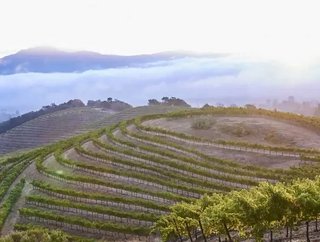Moët Hennessy’s sustainable practices

Moët Hennessy has been demonstrating its commitment to sustainable development for almost 30 years, starting with the Champagne houses in 1990, and currently with a majority of their brands from Moët & Chandon to Belvedere Vodka.
Sustainability plays an important role in Moët Hennessy’s mission, with the Maisons at the forefront, protecting the environment within their distilleries and wineries across the globe.
Hennessy
Electric Vehicles, Hennessy operates the largest fleet of electric vehicles of any private business in France. Switching to electric vehicles cuts CO2 emissions by 80% compared with the fossil fuel fleet. Today, a full 80% of the Hennessy fleet comprises Renault and BMW electric vehicles.
Belvedere
Conserving Energy, Belvedere is committed to sustainability and driven by a dedication to conversing energy during the vodka distillation process and shifting fuel sourcing from oil to natural gas. Through these conscientious practices, the brand has been able to reduce CO2 emissions by 42% since 2012.
SEE ALSO:
-
Anglo American reveals sustainability performance for 2018 and future goals
- Read the latest issue of CSO Magazine here
Moet & Chandon
Electric Tractors, In 2015, Moët & Chandon expanded its vineyard fleet. Designed by the Champagne firm Kremer Énergie, the T4E is the world’s first 100% electric high-clear tractor. Since it uses no fossil fuel, it generates zero carbon emissions while meeting Moët & Chandon’s technical specifications for both milling and treatment work –a perfect pairing with the Champagne house’s commitment to sustainable winemaking.
Glenmorangie
Prevention of Pollution, Non-Renewable Resources & Waste, Glenmorangie aims to do all that they can to prevent pollution arising from their business, to minimize their use of non-renewable resources, reduce and control pollutants or waste resulting from the operations.
Restoring the oyster reefs, A ground-breaking environmental project pioneered by Glenmorangie has seen Native European oysters reintroduced to coastal waters around its Highland home after a century’s absence. The project’s vision is to restore long-lost oyster reefs to the Firth, to enhance biodiversity and also act in tandem with the anaerobic digestion plant to purify the by-products created through the distillation process – an environmental first for a Distillery.
Chandon
Owls at Vineyards, As opposed to using rodenticides to rid their fields of critters eating their grapes, Chandon have owl boxes to encourage owls to nest & work as a natural pest control strategy
Conserving Water, Chandon monitors the water content in the soil and vines, allowing parsimonious use of their water resources. Their vineyards are irrigated almost entirely by reclaimed or collected water.






